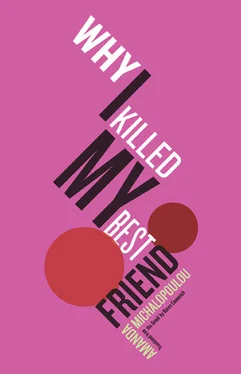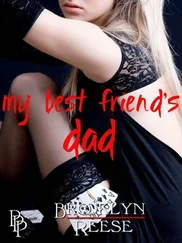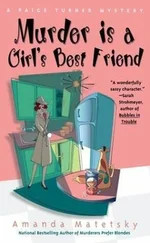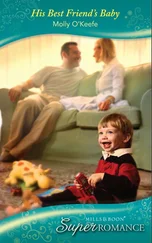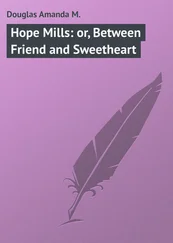or perhaps you left the TV on again?
I can live with these things, I’m getting used to your absence.
What I can’t bear
are your sneakers outside the door,
worn at the heels, with muddy laces,
placed so neatly side by side
as if your mother were still alive, and pleading:
“son, some order, please.”
Your shoes remind me of all we never had—
a house, children, double-bed sheets, the TV playing.
The geography lesson of any couple:
memories to the east, boredom to the west.
Your shoes say,
“He’s not yours anymore, accept it.”
I stand in front of your locked door and accept it:
the white, worn leather
is the last sign of your existence
at the moment when your body, your airy heart,
your black t-shirt
are journeying from the attic to the sky.
Then, at the corner,
your shoes suddenly disappear,
everything disappears.
As it should.
When you have nothing, you know exactly what it is you want.
Anna Horn
Summer, 1981
•
FARMING
Am I scraping at the earth or is it scraping at me?
Am I weeding or is something inside me being uprooted?
Am I tidying hoes and watering cans in the garden shed
or is someone telling me to shut up already and go to sleep?
I have no idea what happens in nature, who does what.
Usually nothing happens.
The earth is silence.
When day breaks, I go back to weeding
flies buzzing over all my actions
in recognition of their significance and difficulty.
I tear open seed packets
to make sure the supplier hasn’t tricked me.
In the afternoon I water and listen.
Dampness is silence.
“And if it prefers to dry up?”—I wonder.
“If it got tired and wants to die?”
I’ll never know.
Silence is silence.
Anna Horn
Summer, 1984
•
PIZZA NAPOLITANA
for Maria
A large group — how many, twelve?
You’re at the far end, in a bad mood,
barely looking my way.
I look when you’re not looking, and when you’re looking, too.
I keep hoping you’ll come over and give my cheek
a sudden kiss in this crowd of strangers.
But your sharp teeth are busy
with something else:
they’re devouring a slice of napolitana.
Is that tomato sauce on your upper lip
or a new, fresh wound?
Should I come over to see or would that not be wise?
Your cheeks say no.
They’re filled with something hard
something you keep replacing with something else
even harder.
But I want to be your mouthful
and the next
and the next after that.
I want to be your digestion and your hunger, too.
Look: tomato sauce stains my lips, like yours.
You bite me and make me bleed.
Anna Horn
Paris, 1989
•
It’s been a week since the memorial service and the same electrified silence still reigns in the office of the house in Ekali. I’ve pulled the shutters closed to admit no light, to block out the trees — the nature Anna described in some of her youthful poems. This is how I punish myself for not being there, for not saving her. Sitting on the floor, I’m putting her papers in order under the cold white light of Malouhos’s lamp. Every now and then tears come. The strange thing is, I don’t cry over the things you’d expect — the poem she dedicated to me after our heated discussion in that awful pizzeria. I cry at the phrase fought for a better tomorrow with beer cans and paper bags . Or, not a protest, over .
The letters she never sent to me are stored in shoe boxes, along with piles of other unsent letters. The ones to me all begin with the same harsh invocation of my name — a plain Maria —and end with an urgent write to me . And now I do really feel the need to write her one of those torrential, twenty-page letters we used to exchange back when we were teenagers.
Anna , it would begin, you betrayed me and I betrayed you countless times. Today I found a huge stack of letters you wrote to Michel, in which you call him your only love. To me you talked about exercises in courage, about bourgeois habits, when what you were really trying to say was love. What kind of friends were we, anyhow? Years later, when I told you I’d seen Michel in Berlin, you asked me how he was, what he was up to, if there was a woman in his life — but you couldn’t even hint at the truth .
You loved whomever I loved — Michel, Angelos, Camus — probably because you loved me, too. That’s something that never crossed my mind. Sincere, passionate, oppressive love. Odiosamato. Was that it? Then why didn’t you say so? Or perhaps you did, in your way, and I just didn’t want to hear. I thought that people who love too passionately must be lying, maybe even on purpose. That’s something you never understood about me. My reserved nature wasn’t an indication of my distrust toward you, but toward life .
You were always storming off in anger, and then coming back again. I always thought those returns were the fruit of my tireless efforts to win you back, but you would have come back anyway. You needed that cycle of emotions in order to exist: enthusiasm, betrayal, anger, despair, forgiveness, then back to enthusiasm again. Only then, only thus, were you Anna. You were afraid of earthquakes, afraid of the end of ideology. What else were you afraid of? Of your own hands, perhaps, which were capable of going so far to protect me, of pushing a man into the water, of bringing an end to ideology, of causing the earthquake that would destroy the safety of the world?
Another long cycle and you came back entirely refreshed, with new blood, new resilience, a husband and child — what better suit of armor? Now I can see it clearly: you came with a plan. You wanted us to organize the revolution we’d abandoned in the middle. When you saw me withdrawing, when I stopped being involved with the preparations for the occupation of the Attic Highway, when I became a “sheep,” as you called me right before you hung up the phone on me for the very last time, you decided to teach me a lesson. You went on television, supposedly addressing yourself to the world, but really you were talking straight at me. I’ve memorized what you said, I don’t need a reporter to quote it: “We all have to show courage and faith in our ideals. We have to literally embody our emotions if we’re going to act politically. New technologies have marginalized the body. There’s nothing more dangerous than that. We here are going to fight with our bodies, because it’s the only thing we have left.” In essence, you were warning me. If I didn’t show courage, you’d show me how a body can be used as the ultimate weapon. For all those years I thought you were the one who was killing me bit by bit, with your attitude toward me. That without you I could finally become the person I dreamed of being. Whereas in fact I was killing you, too .
And now that you no longer exist, I sit here wallowing with you in an absolute nothingness. Or perhaps I’m playing the worst role of all: that of your ghost. Malouhos won’t let me leave, on the pretext that your papers need to be put in order by the person who knew you best. Daphne clings to me like a leech, her hands shake my hips, punishing me for not saving you. It was bad timing, the worst timing: you see, I was trying to save myself. And part of that attempt was the decision to keep my distance from you for a while. I wanted to montage the video of women who look like Antigone; I wanted to make them walk to the tune of the Internationale. I wanted to finally look for a gallery where I could show my work .
Читать дальше
